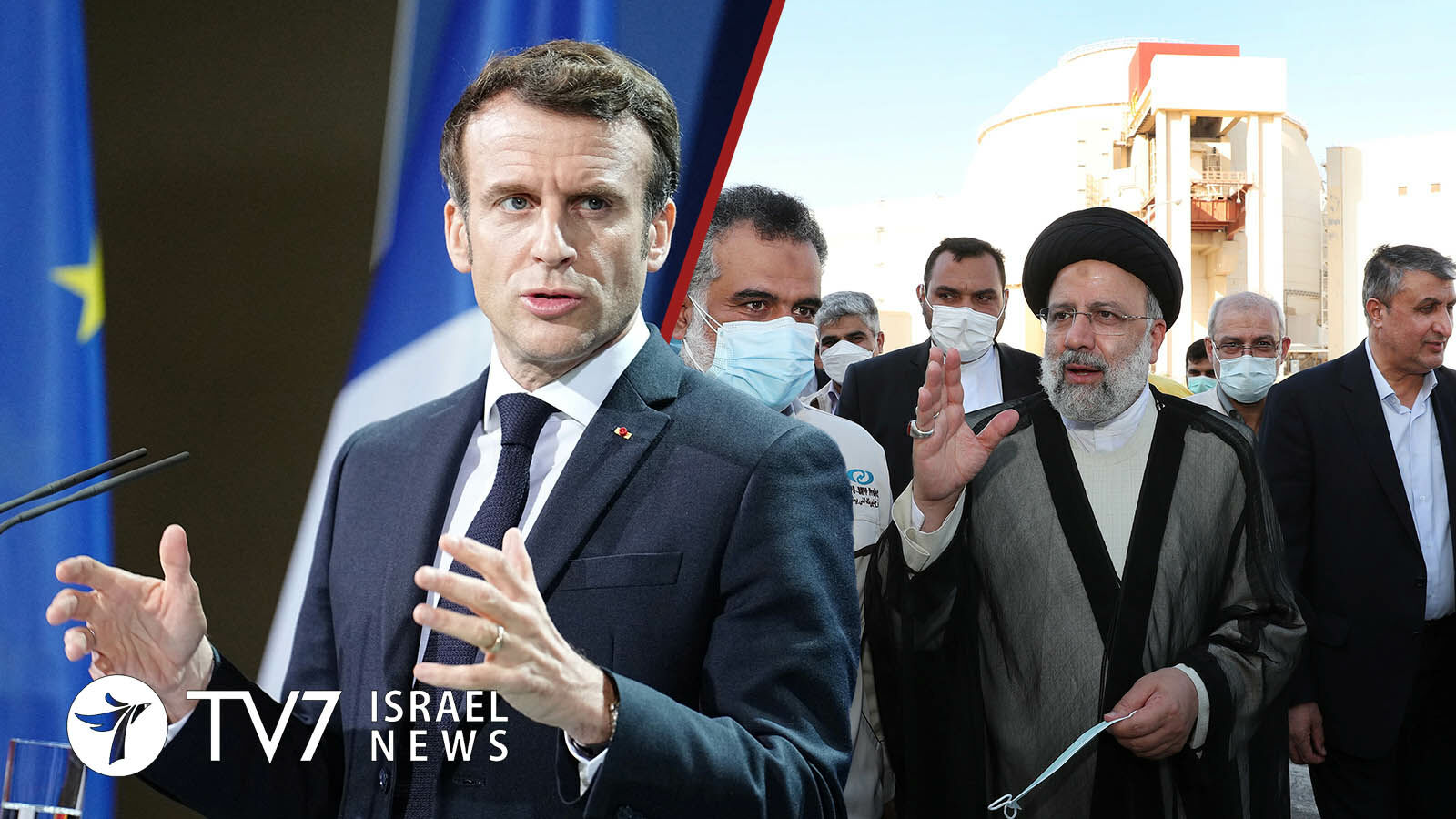The French President told his Iranian counterpart Ebrahim Raisi that revival of the Joint Comprehensive Plan of Action (JCPOA) is still possible but talks need to accelerate,
By Erin Viner
French President Emmanuel Macron “reiterated his conviction that a diplomatic solution is possible and imperative, and stressed that any agreement will require clear and sufficient commitments from all the parties,” said the Elysee palace in a statement following a telephone conversation between the two leaders on Saturday.
The E3 nations of France, Germany and Britain have been mediating indirect talks in Vienna between Iran and the United States aimed at salvaging the JCPOA nuclear deal, but Western diplomats say the negotiations – which have been in their 8th round since 27 December – are moving too slowly.
Iran has rejected any deadline imposed by its partners in the 2015 deal, and demands all the lifting of all sanctions imposed by the administration of former US President Donald Trump, who withdrew from the JCPOA 4 years ago, before it will commit to reinstating curbs on its nuclear activities.
According to the statement from the French President’s office, Macron “insisted on the need to accelerate in order to quickly achieve tangible progress in this framework,” and “underlined the need for Iran to demonstrate a constructive approach and return to the full implementation of its obligations.”
President Macron also asked for the immediate release of 2 French citizens imprisoned in Iran, Fariba Adelkhah and Benjamin Briere.
Franco-Iranian academic Adelkhah, affiliated with Paris’s prestigious Sciences Po university, was arrested in 2019 and sentenced to 5 years in prison last year before being released to house arrest. The French Foreign Ministry revealed she had been re-imprisoned last week, and her supported say she is being held at Tehran’s notorious Evin prison.
Paris condemned Adelkhah’s prosecution as ‘politically motivated’ and Macron previously called her arrest ‘arbitrary,’ a claim dismissed as “propaganda” by Iranian officials.
“The decision to re-incarcerate her, which we condemn, can only have negative consequences on the relationship between France and Iran and reduce the trust between our two countries,” said the French Foreign Ministry, which demanded her immediate release.
Briere, 36, has been held in Iran since May 2020 after being arrested for flying a helicam (remote-controlled mini helicopter used to obtain aerial or motion images) in the desert near the Turkmenistan-Iran border. The French tourist was sentenced on 25 January to 8 years in prison on espionage charges.
Describing his trial as a politically motivated sham, “It is unacceptable that Benjamin Briere remains a hostage to negotiations on the part of a regime that persists in its desire to arbitrarily detain a French citizen and use him as a bargaining chip,” his Paris-based lawyer Philippe Valent said in a statement.
Briere, who has consistently denied any wrongdoing, has been on a hunger strike since Christmas. He was shocked by the sentence, said his Iranian attorney Saeid Dehghan, who disclosed that an additional 8-months behind bars for “propaganda against the Islamic Republic” on charges of cooperating against Iran with hostile states was unexpectedly included in the sentence.
Critics believe both Briere and Adelkhah are being held to ratchet up pressure on France, which has notably been seen as tougher in nuclear negotiations with Iran than some of the other parties to the deal.
